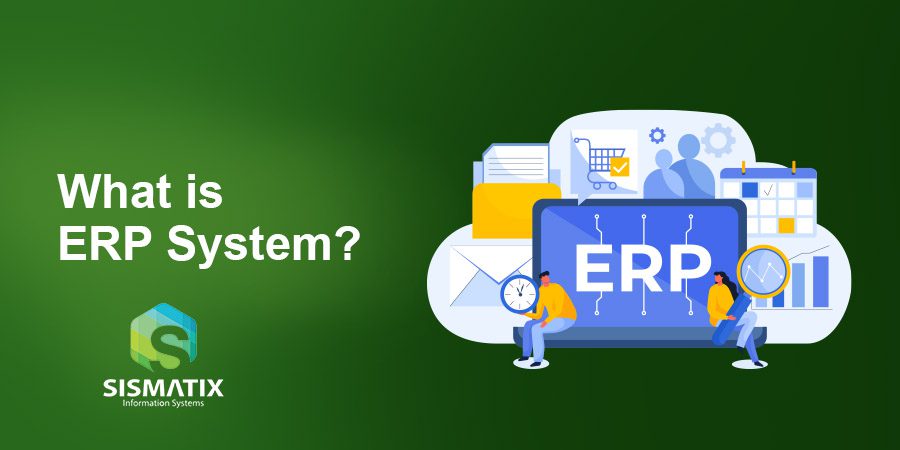
Running a successful franchise requires a delicate balance. You maintain brand consistency while allowing individual locations some autonomy. Managing this complex ecosystem becomes increasingly difficult as your franchise grows. This is where ERP systems for franchises come in – a powerful solution to streamline operations, improve efficiency, and ultimately drive growth.
Beyond Spreadsheets and Siloed Data: The Challenges of Franchise Management
Franchise businesses often rely on a patchwork of software solutions to handle various departments like inventory, accounting, customer relationship management (CRM), and human resources (HR). This fragmented approach leads to several challenges:
Data Silos and Inconsistency: Scattered data makes it difficult to gain a holistic view of your franchise operation. Inventory levels might not reflect sales data, leading to stockouts or overstocking. Franchisees might struggle to access real-time data critical for informed decision-making.
Lack of Standardization: Without a centralized system, franchises may develop their own processes, leading to inconsistencies in brand experience for customers.
Inefficiencies and Cost Overruns: Manual data entry across multiple systems is time-consuming and prone to errors. Integrating data through an ERP eliminates manual processes, saving time and resources.
ERP for Franchises: A Unified Platform for Growth
An ERP system acts as the central nervous system for your entire franchise network. It integrates various functionalities into a single platform, offering numerous benefits:
Improved Data Visibility and Insights: An ERP system provides a real-time view of your entire operation, including inventory levels, sales data, customer information, and employee performance. This empowers you to make data-driven decisions, identify trends, and optimize resource allocation across your franchise network.
Enhanced Standardization and Brand Consistency: An ERP system ensures all franchises follow standardized processes for inventory management, sales, marketing, and customer service. This fosters brand consistency and ensures a seamless customer experience across all locations.
Streamlined Operations and Increased Efficiency: Automation capabilities within an ERP system eliminate manual data entry tasks, saving valuable time and reducing the risk of errors. Integrated workflows improve communication and collaboration between franchisees and the franchisor.
Improved Supply Chain Management: ERP systems provide real-time inventory tracking, enabling you to optimize stock levels, reduce the risk of stockouts, and minimize overhead costs.
Enhanced Franchisee Support: An ERP system allows franchisors to provide more effective support to franchisees by facilitating communication, sharing best practices, and providing access to training materials and resources.
Beyond the Core: Additional Benefits for Franchise Businesses
Modern ERP systems offer features specifically tailored to franchise needs:
Franchise Performance Management: Monitor key performance indicators (KPIs) across your franchise network, identify areas for improvement, and implement targeted strategies to enhance performance at individual locations.
Royalties and Fee Management: Simplify royalty and fee calculations and automate collection processes across your franchise network.
Automated Reporting: Generate comprehensive reports on sales, inventory, and other key metrics, providing valuable insights for both franchisors and franchisees.
A Real-World Example: How ERP Empowers a Franchise
Consider the example of a popular pizza franchise. Before implementing an ERP system, they struggled with inconsistent inventory levels, inefficient ordering processes, and limited visibility into franchisee performance. Implementing an ERP system allowed them to:
Streamline ordering processes: Franchisees can access real-time inventory data and place automated orders with suppliers, ensuring optimal stock levels.
Improve communication and collaboration: The franchisor can easily share best practices and marketing materials with franchisees, fostering a more collaborative network.
Gain data-driven insights: Real-time data analytics allow them to identify high-performing menu items and adjust marketing strategies for each location.
This example highlights how ERP systems can address critical challenges and empower franchise businesses to thrive.
Choosing the Right ERP for Your Franchise
Not all ERP systems are created equal. When selecting an ERP system for your franchise, consider factors like:
Industry-Specific Features: Ensure the ERP system caters to the specific needs of your franchise industry.
Scalability: Choose a system that can adapt and grow with your expanding franchise network.
Ease of Use: Consider the technical expertise of your franchisees and choose a user-friendly system.
Integration Capabilities: Ensure the ERP can integrate with your existing software solutions.
Investing in Your Future: Embracing ERP for Franchise Success
Implementing an ERP system requires a commitment from both the franchisor and franchisees. However, the benefits outweigh the initial investment. ERP systems empower you to manage a successful and growing franchise network – ensuring brand consistency, operational efficiency, and long-term growth.





